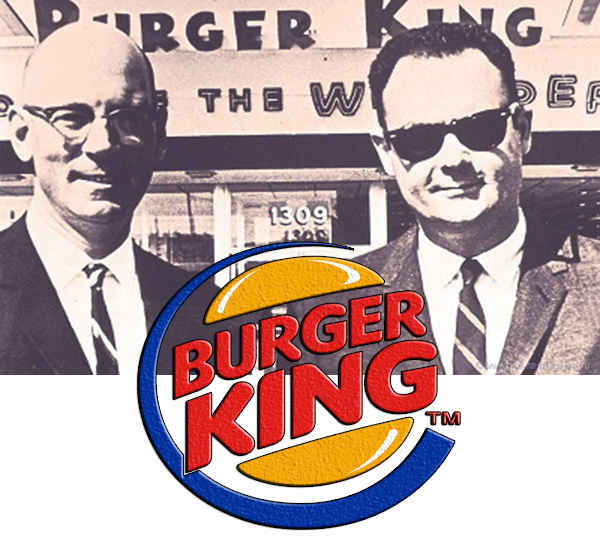Why is Burger King so bad?
History of Burger King

- Founding and Early Years
Burger King, originally named Insta-Burger King, was founded in 1953 in Jacksonville, Florida, by Keith J. Kramer and Matthew Burns. The restaurant was built around a piece of equipment called the “Insta-Broiler,” which could cook multiple burgers simultaneously. Despite the innovation, the company faced financial difficulties and was acquired in 1954 by James McLamore and David Edgerton, who renamed it Burger King and introduced the signature Whopper sandwich in 1957.
- Expansion and Growth
Throughout the 1960s and 1970s, Burger King expanded rapidly across the United States and internationally. The introduction of franchising helped to fuel this growth, allowing the company to open hundreds of new locations. By the 1980s, Burger King was a major player in the fast-food industry, competing directly with McDonald’s.
- Corporate Changes
Over the years, Burger King has undergone several ownership changes. It was acquired by Pillsbury in 1967, then by the British conglomerate Grand Metropolitan in 1989, and later by private equity firm TPG Capital in 2002. In 2010, 3G Capital acquired Burger King, leading to a significant restructuring of the company.
Reasons Why Burger King is Criticized

- Inconsistent Quality
One of the most common complaints about Burger King is the inconsistency in food quality. Unlike some competitors, the quality of food at Burger King can vary greatly from one location to another. Factors – example: how well the staff is trained, the condition of the kitchen equipment, and management practices contribute to this inconsistency.
- Poor Customer Service
Customer service at Burger King has been frequently criticized. Long wait times, incorrect orders, and unprofessional behavior from staff have been reported by customers. Poor service can significantly affect customer satisfaction and overall experience.
- Health and Nutrition Concerns
Burger King’s menu is often criticized for being unhealthy. High-calorie items, excessive sodium levels, and large portion sizes contribute to these concerns. While Burger King has made some efforts to introduce healthier options, example: salads and grilled chicken sandwiches, the majority of its menu remains high in fat and calories.
- Cleanliness Issues
Cleanliness and hygiene issues are another significant area of criticism. Reports of dirty dining areas, poorly maintained restrooms, and unhygienic kitchen practices have negatively impacted Burger King’s reputation.
- Marketing Missteps
Burger King’s marketing strategies have sometimes backfired, leading to public relations issues. Controversial advertisements and failed promotional campaigns have occasionally alienated customers and hurt the brand’s image.
- Competitive Pressure
Burger King faces intense competition from other fast-food chains, particularly McDonald’s. The fast-food industry is highly competitive, and Burger King has struggled at times to differentiate itself and maintain a strong market position.
Interesting Facts About Burger King

- The Whopper’s Origin
The Whopper, Burger King’s signature sandwich, was introduced in 1957 and sold for 37 cents. It was created to offer customers a larger, more filling option compared to competitors’ standard burgers.
- Global Presence
Burger King operates in over 100 countries with more than 18,000 locations worldwide. This extensive global presence makes it one of the largest fast-food chains in the world.
- Flame-Grilling
Burger King is known for its flame-grilled burgers, a cooking method that differentiates it from many other fast-food chains. This technique is intended to give the burgers a distinctive, smoky flavor.
- King Mascot
The Burger King mascot, also known as “The King,” has been a part of the brand’s identity for decades. The mascot has appeared in various forms of advertising, sometimes drawing mixed reactions from the public.
- Impossible Whopper
In 2019, Burger King introduced the Impossible Whopper, a plant-based version of the classic Whopper made with Impossible Foods’ plant-based patty. This move was part of the chain’s efforts to cater to the growing demand for vegetarian and vegan options.
Burger King was one of the first fast-food chains to heavily market the concept of customization with its “Have It Your Way” slogan, emphasizing that customers could tailor their orders to their preferences.
Burger King’s journey from its humble beginnings in Florida to becoming a global fast-food giant is marked by both successes and challenges. While the chain has faced criticism for inconsistent quality, poor customer service, health concerns, cleanliness issues, marketing missteps, and intense competition, it remains a significant player in the fast-food industry.
Despite these issues, Burger King’s unique selling points, example: the Whopper and flame-grilled burgers, continue to attract a loyal customer base worldwide.












